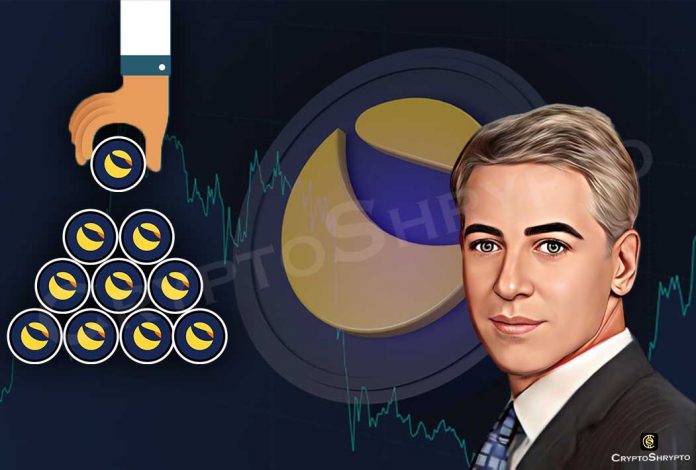The cryptocurrency market is now digesting the rise and collapse of Terraform Labs’ network token Terra (LUNA) and stablecoin TerraUSD, both of which are based in Singapore (UST).
Following the unexpected loss of about $45 billion in market value in a week, much has been made of the project’s architecture, namely its supposedly defective algorithm, which was directed by South Korean programmer Do Kwon.
Bill Ackman, the billionaire investor and founder and CEO of Pershing Square Capital Management, is the most recent industry figure to weigh in on the contentious issue.
The collapse of stablecoins, according to the hedge fund manager, is “the crypto equivalent of a pyramid scheme” and might have an influence on the whole cryptocurrency ecosystem.
“Investors were guaranteed 20% returns backed by a token whose value is completely determined by demand from new investors in the token… there is no underlying business,” Ackman said in a tweet.
Ackman’s comments follow last week’s crypto massacre, which wiped out cryptocurrencies valued at hundreds of billions of dollars. The collapse of the dollar-pegged Terra currency led to the crash. The “stablecoin” fell to as low as $0.30 on Wednesday after being “unpegged” from the US dollar.
The value of Terra’s free-floating sibling coin, LUNA, has also fallen by more than 98 percent in what market observers have called a “death spiral.” Ackman stated that when additional investors purchased the digital asset, the quantity of LUNA tokens was restricted by a vesting schedule.
LUNA fell when sellers outnumbered buyers by a substantial margin. This, according to Ackman, is proof of a Ponzi scheme. It was able to survive and grow in its early stages due to the scheme’s digitalization and the crypto market’s remarkable enthusiasm.




